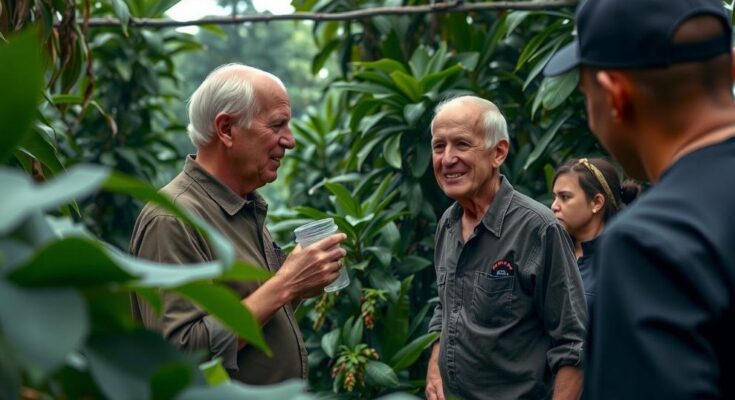During his visit to the Amazon, President Biden asserted that his climate legacy cannot be easily reversed, highlighting his administration’s clean energy achievements. He expressed optimism that the U.S. would continue to lead in combating climate change despite the incoming administration’s plans to rollback key policies. Biden also confirmed significant international aid contributions aimed at protecting the Amazon and addressing drought impacts while leaving a foundation for future climate efforts.
During a recent visit to the Amazon rainforest, President Biden underscored the permanence of his climate change policies, stating that efforts to roll back his clean energy initiatives would ultimately fail. Maintaining the significance of this moment, he asserted, “Nobody — nobody — can reverse it. Nobody.” As the first sitting U.S. president to visit the Amazon, his trip was positioned between crucial summits in South America and served to highlight his administration’s achievements in combatting climate change. Biden’s visit included an aerial survey of drought-stricken areas and illegal logging sites, coupled with discussions with indigenous leaders and climate scientists. He pointed to his administration’s clean energy investments, which he believes could halve carbon emissions in the United States by 2030, stating, “I will leave my successor and my country the strong foundation to build on, if they choose to do so.” He emphasized the need for a government that embraces the economic opportunities presented by clean energy. The backdrop to Biden’s visit included the impending transition to a Trump administration that has pledged to dismantle key environmental policies. Trump’s previous withdrawal from the Paris Agreement contrasts with Biden’s re-engagement on his first day in office, although there are concerns over the future of U.S. climate commitments under a new administration. Biden disclosed that he had fulfilled his promise to increase international climate aid significantly, including a $50 million contribution to Brazil’s Amazon Fund. His administration views this as part of a broader effort to address global environmental challenges and support recovery in the Amazon region. In light of the upcoming policy changes, Biden’s administration aims to solidify current environmental regulations and initiatives before leaving office. A senior U.S. official expressed cautious optimism about the potential for future climate engagement from a Trump administration, remarking on the scale of environmental damage witnessed during the visit. Biden’s administration, therefore, approaches this transitional period with the hope that direct exposure to climate issues may influence policy decisions moving forward.
This article discusses President Biden’s recent visit to the Amazon rainforest, which serves as a strategic attempt to reinforce his climate legacy. As President-elect Donald Trump prepares to assume office, Biden seeks to emphasize the irreversible nature of his climate initiatives amidst anticipated policy rollbacks. The context of this visit is critical, considering the contrasting approaches to climate agreements and clean energy investments between the outgoing and incoming administrations. The Amazon rainforest’s environmental significance further underscores the urgency of international climate cooperation, highlighting Biden’s commitments to both domestic clean energy and global climate aid.
President Biden’s visit to the Amazon rainforest stands as a pivotal moment in asserting his administration’s climate legacy, emphasizing the durability of clean energy initiatives despite challenges from the incoming Trump administration. Biden’s confidence in the sustainability of these policies, coupled with significant international aid commitments, aims to position the United States as a leader in the global climate change dialogue. The future implications of these policies, however, remain contingent upon the outcomes of the upcoming administration, raising questions about the continuity of U.S. environmental commitments.
Original Source: www.mainepublic.org




